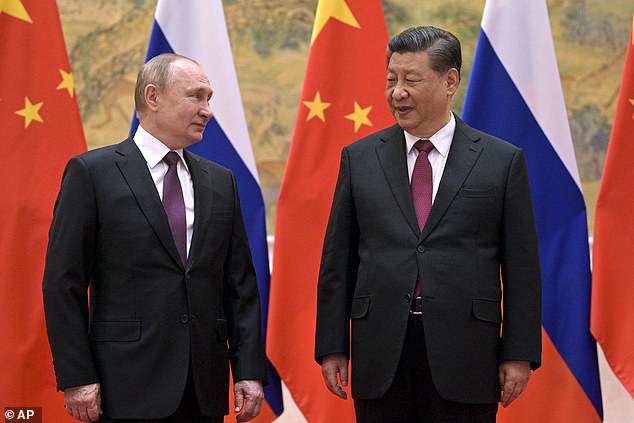CNN —
President Joe Biden’s trip to mark the anniversary of the war in Ukraine is highlighting an even more grave challenge – a new era of simultaneous and sometimes intertwined US confrontations with nuclear rivals Russia and China.
Biden’s dramatic visit to Kyiv Monday amid wailing air raid sirens and his soaring speech in Warsaw a day later reinforced the West’s remarkable support for Ukraine’s resistance to Russia and directly repudiated President Vladimir Putin.
But Putin issued his riposte in an annual address, framing the war in Ukraine as a wider existential battle against the West. After Biden vowed the US will be with Ukraine for as long as it takes, Putin’s speech underlined just how long that may be, raising the possibility of more years of war that will stretch the commitment of Western governments and populations to the cause.
China is meanwhile injecting its own strategic play into this widening great power brouhaha. It sent its top diplomat Wang Yi – his ears ringing with US warnings not to send Russia arms to use in Ukraine – to Moscow for high-level talks, even as a Sino-American spy balloon feud simmers.
In the latest highly significant move in a week of diplomatic symbolism, Putin welcomed Wang and told him relations between Beijing and Moscow were “reaching new milestones.”
Wang told Putin that the two nations often face “crisis and chaos, but there are always opportunities in a crisis and the latter could possibly turn into the former.”
This week’s developments do not mean that the future national security threats to the US from Beijing and Moscow are the same. The war in Ukraine has often exposed Russian weakness while worries about China’s rising power will preoccupy Washington for much of this century. And the two US foes are not locked in a formal alliance against the US, even if both see ways that they can advance their own aspirations to harm American interests and power by working together.
But this moment finds the United States negotiating worsening foreign policy crises at the same time – with its former Cold War adversaries in the Kremlin and its belligerent new superpower rival led by Xi Jinping. Both these rivals are openly challenging the international rule of law and rejecting norms that have underpinned the international system for decades.
The idea of a global contest between democracies and autocracies seemed theoretical and intangible when Biden voiced it while running for president. Now it is all too real.
And this new and complicated foreign policy picture is not just a problem for American diplomats. Rising challenges abroad as well, as the depletion of US and Western weapons stocks as arms are sent to Ukraine, pose questions about military capacity and whether current defense spending is sufficient. Key Republicans meanwhile are accusing Biden of snubbing voters facing economic and other problems, even as he tries to position Democrats as the protectors of working Americans as the 2024 campaign dawns.










